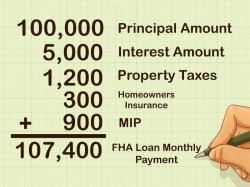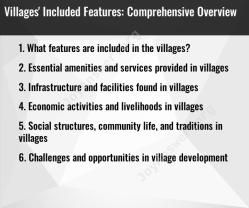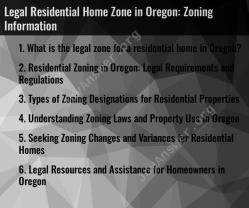What do you need to know before selling your house?
Selling a house can be a complex and significant financial transaction. Before you decide to sell your house, here are some important things you need to know and consider:
Current Market Conditions: Understand the local real estate market in your area. Is it a buyer's market or a seller's market? This will influence your pricing strategy and the time it might take to sell your house.
Property Value: Get a professional appraisal or a comparative market analysis (CMA) from a real estate agent to determine the current value of your property. This will help you set an appropriate asking price.
Repairs and Upgrades: Consider making necessary repairs and improvements to enhance the appeal and value of your home. This may include fixing structural issues, updating outdated features, or simply improving curb appeal.
Pricing Strategy: Price your home competitively. Overpricing can discourage potential buyers, while underpricing may lead to financial losses. Work with a real estate agent to determine the right listing price.
Real Estate Agent: Hire a reputable and experienced real estate agent to help you sell your home. They can provide valuable insights, market your property, and assist with negotiations.
Pre-Listing Inspection: Consider having a pre-listing inspection done to identify any potential issues that need to be addressed before the sale.
Disclosure Obligations: Be aware of your legal obligations regarding property disclosures. You may need to inform potential buyers about any known defects or issues with the property.
Home Staging: Consider staging your home to make it more appealing to potential buyers. A well-staged home can often sell faster and at a higher price.
Marketing Plan: Work with your real estate agent to create a marketing plan. This may include professional photography, online listings, open houses, and other promotional efforts to attract buyers.
Negotiation Skills: Be prepared for negotiations with potential buyers. This includes understanding what you are willing to negotiate on and the terms that are most important to you.
Legal and Contractual Matters: Familiarize yourself with the sales contract and any local or state laws related to property sales. Consider consulting with a real estate attorney to ensure a smooth and legal transaction.
Closing Costs: Understand the typical closing costs associated with selling a home, which can include agent commissions, transfer taxes, title insurance, and more. These costs can impact your net proceeds from the sale.
Timeline: Have a clear understanding of your desired timeline for the sale. Are you in a hurry to sell, or can you wait for the right buyer and offer?
Moving Plans: Develop a plan for where you'll move after selling your home. This may involve finding a new place to live, arranging for the logistics of the move, and decluttering your current home.
Financial Implications: Consider the financial implications of selling your home, including potential capital gains tax and how the sale will impact your overall financial situation.
Selling a home can be a significant undertaking, so it's important to be well-informed and well-prepared. Working with a real estate professional, such as a real estate agent and, if necessary, a real estate attorney, can help you navigate the process smoothly and make informed decisions throughout the transaction.
What You Need to Know Before Selling Your House: Tips and Guidance
Selling a house can be an exciting and rewarding experience, but it also involves careful planning, informed decisions, and a bit of patience. To make the process smoother and more enjoyable, it's essential to understand the key aspects involved in selling a home.
Preparing for a Successful Home Sale: Key Information for Sellers
Before embarking on the journey of selling your house, there are several crucial steps to consider:
Assess your financial readiness: Evaluate your financial situation and determine your budget for the sale. This includes understanding your outstanding mortgage balance, potential closing costs, and any necessary repairs or upgrades.
Set realistic expectations: Research the market in your area to understand current home values and pricing trends. This will help you set a realistic asking price that attracts buyers and doesn't leave you underselling your property.
Enhance your home's appeal: Make your home more attractive to potential buyers by addressing any cosmetic issues, decluttering, and staging it appealingly. Consider professional cleaning, landscaping, and minor repairs to create a positive first impression.
Choose the right real estate agent: Partner with an experienced and knowledgeable real estate agent who understands the local market and can effectively guide you through the selling process. They will handle marketing, negotiations, and paperwork, saving you time and stress.
Navigating the Home Selling Process with Confidence
Once you've completed the initial preparations, you'll begin the active process of selling your home:
List your property: Work with your real estate agent to create a compelling listing that highlights your home's best features and attracts potential buyers. Utilize professional photography and detailed property descriptions to showcase your home's value.
Market your home: Leverage various marketing channels, such as online listings, open houses, and targeted advertising, to reach a wider audience of potential buyers. Consider social media, local publications, and direct mail campaigns to enhance visibility.
Handle showings and negotiations: Prepare your home for showings by keeping it clean, tidy, and well-lit. Be open to feedback from potential buyers and work with your real estate agent to negotiate a mutually agreeable price and terms for the sale.
Inspect and appraise your property: Once you've accepted an offer, the buyer may request a home inspection and appraisal. Cooperate with these processes to ensure a smooth and transparent transaction.
Close on the sale: The closing process involves finalizing paperwork, transferring funds, and officially handing over the property to the new owners. Review all documents carefully and ensure you understand all terms and conditions before signing.
Additional Tips for Home Sellers:
Be patient: Selling a home can take time, especially in a slower market. Be patient, stay positive, and work closely with your real estate agent to maintain momentum.
Be prepared to negotiate: Buyers may try to negotiate the price or terms of the sale. Be prepared to discuss their concerns and reach a compromise that is fair to both parties.
Get everything in writing: Before you sign anything, make sure you understand all the terms and conditions. Don't hesitate to ask questions or seek clarification from your real estate agent or legal counsel.
Do your research: Before you make any major decisions, do your research on the market, the process, and the potential costs involved. This will help you make informed choices and avoid surprises along the way.
Conclusion
Selling a house can be a significant milestone in one's life, and it's essential to approach the process with knowledge, preparation, and a positive attitude. By following these tips and seeking professional guidance when needed, you can successfully navigate the home selling process and achieve your goals.













